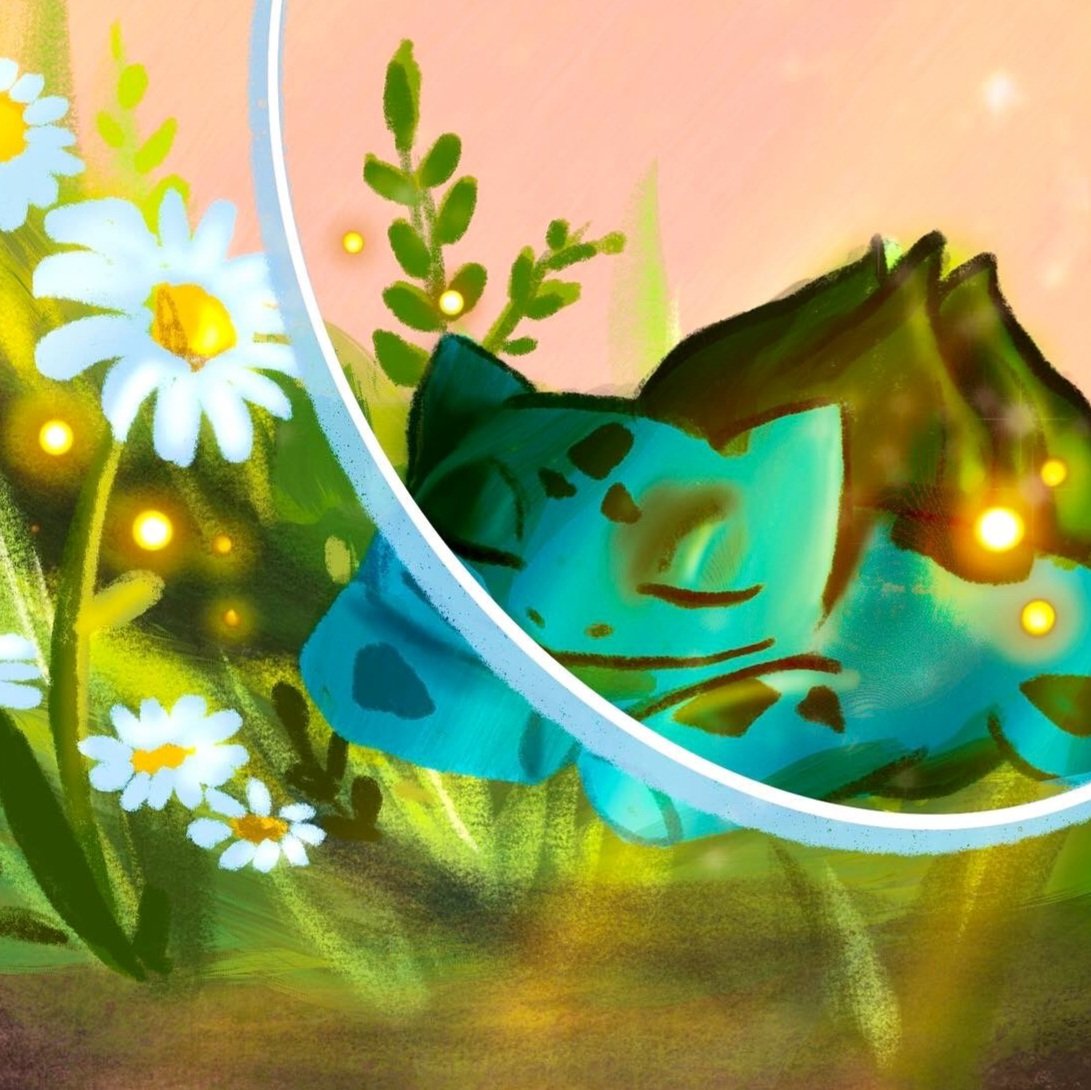- cross-posted to:
- [email protected]
- cross-posted to:
- [email protected]
I hate that this used to be me.
Personal growth :)
:)
It’s especially ironic considering I’ve gone vegan this year.
Personal growth++
To be fair. There is much debate around whether livestock is indirectly carbon neutral with very valid studies on both sides
Please link any study on livestock being CO2-neutral. I’m very skeptical, but would love to read your source first.
I don’t have access to my schools library atm. But here’s one I found off google (which is admittedly a poor method to find studies)
https://smallfarms.oregonstate.edu/new-study-finds-grass-fed-beef-reduces-carbon-footprint
Full disclaimer I should have clarified in my original comment. Grass fed livestock specifically is carbon neutral
The key is to farm or graze using regenerative methods. Current factory farming methods are detrimental to the soil and the rest of the environemnt in many ways. Bear in mind, however, that the largest contributor to greenhouse gasses is the healthcare sector, and that’s going to be a tough nut to crack.
got any reading on that ? legit never heard that before
See my comment further down the thread going into detail about how this is not the case https://lemmy.ml/comment/646750
Check out the “sodcasts” of Peter Ballerstedt on his YouTube channel. He’s a forage agronomist with a lot of knowledge. You may not like his conclusions, but he gives you the data to check them out.
I looked on google scholar to see any of their papers. Most of what I could find doesn’t seem to be exactly peer-reviewed articles nor are most really cited by any other papers. At that they are making rather bold claims with rather weak evidence
I’m a vegetarian.
I was, and still am, surprised by how often people will go into a long rant justifying why they eat meat to me as soon as they find out I’m vegetarian. All the while I’m just sat there, not saying anything, because I literally do not care whether or not they eat meat.
Me being a vegetarian is a personal choice for me and myself only. You do you. I don’t care. You don’t need to explain yourself to me. It makes me feel so awkward.
People will often ask me why I’m a vegetarian too. But it feels like a very personal and heavy question to ask someone immediately after finding out they’re vegetarian… I don’t especially want to talk about animals dying all the time and how it makes me sad especially to strangers.
Edit/Addition: It feels like a lot of focus is brought on how vegetarians/vegans force their views onto other people but my experience personally is non-vegetarians/vegans trying to force me into conversations about this topic.
I think veganism is useless. However, I’m not going to argue
So… Tell me how vegan alternatives to items reduce carbon footprint lol.
Vegans in ideology make sense, but if you are paying more for food [that’s worse for you, instead:] just buy local stuff from your farmers market or ethically-farmed things… Local eggs, cows, vegetables… Surely this can’t be unreasonable.
- Oil comes from dinosaurs.
- Electricity comes from oil.
- This means electricity is made from dinosaurs.
- Dinosaurs are animals.
- This means electricity is an animal product.
How curious it is that vegans still use electricity, when in most places it isn’t even vegan!
😂 not sure if you are joking. But most of the biomass which became oil was from plants.
Definitely joking.
got nothing against vegans it’s just when they try to force it into others
As a vegan myself, I completely agree! I won’t tell others what to eat and they shouldn’t tell me what to eat. If I were to ever get “preachy” it’s purely about reducing impact on the factors mentioned in the meme and by no means forced… One less meal a week with meat in? Go you! Locally sourcing meat? Hell yeah, less environmental impact!
For the bit about local, it’s worth noting here that the difference is substantially less than one might expect. Transport is a surprisingly small portion of emissions and environmental impact
Transport is a small contributor to emissions. For most food products, it accounts for less than 10%, and it’s much smaller for the largest GHG emitters. In beef from beef herds, it’s 0.5%.
Not just transport, but all processes in the supply chain after the food left the farm – processing, transport, retail and packaging – mostly account for a small share of emissions.
This data shows that this is the case when we look at individual food products. But studies also shows that this holds true for actual diets; here we show the results of a study which looked at the footprint of diets across the EU. Food transport was responsible for only 6% of emissions, whilst dairy, meat and eggs accounted for 83%
I always thought the party of sourcing from local wasn’t transport but supporting your local economy and small producers, keeping the money within your city and raising buying power for its citizens.
What do you mean by “forcing” veganism onto others?
Eat your vegetables or I will make you eat them! /s vegan btw
Yeah, they’re always outside the Steakhouse picketing. Running at me constantly with a fork full of green vegetables.
THIS IS A REAL PROBLEM THAT I CONSTANTLY HAVE IN REAL LIFE.
This is the sarcasm we deserve.
I’ve known plenty of vegans and not once have I seen them “try to force it into others”… Outside of internet rage baiting crazies.
…Now the religious on the other hand, I have first hand experience with.
You joke, but there have been cases of steakhouses and butcher shops having troubles with protestors. It’s not an everyday thing, but we are talking about a small, crazy portion of an already fringe group.
So crazy to protest ppl profiting off the rape and murder of thousands of sentient beings
…that is a profoundly stupid way to look at it, you cannot exist without hurting something or someone, your mere existence causes pain to some people, and they’d much rather you stop existing, are you going to oblige them too? To define pain and suffering as unacceptable in all forms is to deny reality.
Nice ableism. No one is forcing you to support the rape and murder of sentient beings so you can put their corpses in your mouth. You can choose not to do it, don’t pretend your hands are tied
No, we can’t, we’re omnivores, while you can survive on plant-based sources of protein, in the long term, it causes problems. Getting the right nutrients is difficult and expensive, even in the short-term, meaning that you have to be profoundly privileged to do it, so technically, you’re classist.
And you didn’t answer my question, what about all the other suffering you support? People who suffer so that you can be comfortable, everyone from the avocado farmers and factory workers to the bugs/animals that get poisoned by various pesticides? How is their pain ok, while the cows’ pain is unacceptable? Do you understand that you can’t exist without causing some pain and discomfort, somewhere to something?? The only reason you have a problem with eating meat is because that is right in front of you.
Not the original commenter, but wanted to add some rebuttal to a few of those claims
In terms of health
It is the position of the Academy of Nutrition and Dietetics that appropriately planned vegetarian, including vegan, diets are healthful, nutritionally adequate, and may provide health benefits for the prevention and treatment of certain diseases. These diets are appropriate for all stages of the life cycle, including pregnancy, lactation, infancy, childhood, adolescence, older adulthood, and for athletes. Plant-based diets are more environmentally sustainable than diets rich in animal products because they use fewer natural resources and are associated with much less environmental damage. Vegetarians and vegans are at reduced risk of certain health conditions, including ischemic heart disease, type 2 diabetes, hypertension, certain types of cancer, and obesity. Low intake of saturated fat and high intakes of vegetables, fruits, whole grains, legumes, soy products, nuts, and seeds (all rich in fiber and phytochemicals) are characteristics of vegetarian and vegan diets that produce lower total and low-density lipoprotein cholesterol levels and better serum glucose control. These factors contribute to reduction of chronic disease
https://pubmed.ncbi.nlm.nih.gov/27886704/
In terms of costs
It found that in high-income countries:
• Vegan diets were the most affordable and reduced food costs by up to one third.
• Vegetarian diets were a close second.
• Flexitarian diets with low amounts of meat and dairy reduced costs by 14%.
• By contrast, pescatarian diets increased costs by up to 2%.
https://www.ox.ac.uk/news/2021-11-11-sustainable-eating-cheaper-and-healthier-oxford-study
In terms of issues with crop production
Those end up being reduced due to the lesser need to grow crops. Is it perfect, no, but does it end up substantially ahead, yes
So for instance terms of pesticides, the usage still ends up lower due to a lesser need to grow feed crops
To produce 1 kg of protein from kidney beans required approximately eighteen times less land, ten times less water, nine times less fuel, twelve times less fertilizer and ten times less pesticide in comparison to producing 1 kg of protein from beef
(emphasis mine)
https://pubmed.ncbi.nlm.nih.gov/25374332/
More broadly
Plant-based foods have a significantly smaller footprint on the environment than animal-based foods. Even the least sustainable vegetables and cereals cause less environmental harm than the lowest impact meat and dairy products [9].
https://www.mdpi.com/2072-6643/14/8/1614/htm
This is because
1 kg of meat requires 2.8 kg of human-edible feed for ruminants and 3.2 for monogastrics
https://www.sciencedirect.com/science/article/abs/pii/S2211912416300013
omnivore tho
bugs die tho
expensive tho
Bingo card is looking good.
Same energy as “I don’t hate the gays I just wish they’d stop shoving it in my face”
Very few will force it on others, though. Anyway, I find it hilarious how people can get riled up about the idea of a person not eating meat or any animal products. I’ve seen it often that they take it personally for some reason and will “compensate by eating extra bacon/steak/chicken”. It’s bonkers.
People take it personally because deep down everyone knows it is wrong to keep something as cruel as the meat and dairy industry alive, plus the huge environmental impacts on multiple fronts. So they get super defensive instead of confronting or accepting the fact that they’re doing the wrong thing for selfish reasons.
Yeah when I was a vegetarian kid a decade and a bit ago I was relatively quiet about it because I got sick of meat-eaters throwing bacon at me or trying to “gotcha” me with the classic desert island meme.
Eh, I don’t care what you eat. But I find very offensive, naive, and just plain wrong the idea that it’s impossible to sustainably raise animals for meat, eggs, dairy, etc as many vegans will try to insist.
Does it cost more? Yes. Can we raise as many as we do today using conventional farming techniques? No. Will/should we all cut back on our meat, dairy, etc? Yes. But, then again being more mindful of what we all eat is going to be required regardless, if we’re going to manage to feed everyone.
Claiming that something is on its whole sustainable is rather loosely defined (i.e what level of impact is considered sustainable and on what metrics), so let’s look a little closer. What many are saying there is that process is still going to inherently be much more inefficient compared to growing plants directly for human consumption
It turns out to be the case that the worst-case production of any plants-based production comes out ahead compared to best-case production of meat, dairy, etc. on virtually all environmental metrics
If I source my beef or lamb from low-impact producers, could they have a lower footprint than plant-based alternatives? The evidence suggests, no: plant-based foods emit fewer greenhouse gases than meat and dairy, regardless of how they are produced.
[…]
Plant-based protein sources – tofu, beans, peas and nuts – have the lowest carbon footprint. This is certainly true when you compare average emissions. But it’s still true when you compare the extremes: there’s not much overlap in emissions between the worst producers of plant proteins, and the best producers of meat and dairy.
https://ourworldindata.org/less-meat-or-sustainable-meat
Plant-based foods have a significantly smaller footprint on the environment than animal-based foods. Even the least sustainable vegetables and cereals cause less environmental harm than the lowest impact meat and dairy products [9].
https://www.mdpi.com/2072-6643/14/8/1614/htm
Even true of synthetic fertilizer usage compared to the best case of animal manure
Thus, shifting from animal to plant sources of protein can substantially reduce fertilizer requirements, even with maximal use of animal manure
https://www.sciencedirect.com/science/article/abs/pii/S0921344922006528
In terms of biodiversity
Livestock farmers often claim that their grazing systems “mimic nature”. If so, the mimicry is a crude caricature. A review of evidence from over 100 studies found that when livestock are removed from the land, the abundance and diversity of almost all groups of wild animals increases
If we compare more typical production rather than best to worst, the differences are even more apparent
To produce 1 kg of protein from kidney beans required approximately eighteen times less land, ten times less water, nine times less fuel, twelve times less fertilizer and ten times less pesticide in comparison to producing 1 kg of protein from beef
Holy shit massive wall of text lol

Because I see quite a lot of misinformation in this area, I created a doc of sources where I put relevant quotes as I look into things. It’s now 28 pages. You’ll probably see more walls of text from me on that front :)
Actually, do you have a link to those 28 pages? I’d be interested in reading through it all.
It’s not anywhere online, but I can DM you a copy of the file if you’d like
It’s funny: the forum I help moderate has a strong contingent of zero-carb/carnivores, and their experience is the same, only in reverse. They get shamed for not eating plants. I guess the moral is that people will criticize us, no matter what we do.
Carnivores should be shamed for their incredibly stupid diet.
I use arch btw
I use arch btw
Nobody is forcing veganism onto others lmao. You see a lot of vegans going around putting a gun to someone’s head demanding they drop the eggs they’re holding in the store? Most vegans won’t even tell you they are vegan when it’s not relevant because it’s too exhausting when a person turns out to be a ‘veganism bad lel’ debate bro, so we’d rather avoid the chance.
Stop forcing your views onto innocent animals first
Like you force your lifestyle on animals, by exploiting and killing them?
Voting >>>> Personal energy usage [Using public transit instead of driving, Electric heating, efficient buildings, etc] >>>>>>>>>>>>> Non energy lifestyle choices.
It matters much more than you might think. The emissions from the meat, dairy, etc. industry on their own are enough to make us miss climate targets.
To have any hope of meeting the central goal of the Paris Agreement, which is to limit global warming to 2°C or less, our carbon emissions must be reduced considerably, including those coming from agriculture. Clark et al. show that even if fossil fuel emissions were eliminated immediately, emissions from the global food system alone would make it impossible to limit warming to 1.5°C and difficult even to realize the 2°C target. Thus, major changes in how food is produced are needed if we want to meet the goals of the Paris Agreement.
(emphasis mine)
I’m sorry, voting won’t save us, not while the interests of oil barons supercede the interests of humanity as a whole.
Biden Administration Approves Huge Alaska Oil Project - The New York Times https://www.nytimes.com/2023/03/12/climate/biden-willow-arctic-drilling-restrictions.html
Biden administration moves ahead with massive Gulf of Mexico drilling … - CNN https://amp.cnn.com/cnn/2023/03/29/politics/gulf-of-mexico-drilling-lease-sale-biden-climate/index.html
It’s not them not eating meat that I have a problem with(even though it’s not healthy), it’s the self-righteousness of it.
While the initial reasoning is respectable, veganism is t without it’s flaws, several plants are not ethically sourced and either cause a lot of pollution, destroy habitats to be grown, or are grown via slavery, or a combo of all 3. The real issue is the systems that are in place across the food industry, plant and animal based.
That being said, they still come out ahead in comparison to animal-based foods due to the fact that you need to grow massive amounts of feed crops to raise other creatures. It turns out that pretty much every environmental metric comes out ahead
Transitioning to plant-based diets (PBDs) has the potential to reduce diet-related land use by 76%, diet-related greenhouse gas emissions by 49%, eutrophication by 49%, and green and blue water use by 21% and 14%, respectively, whilst garnering substantial health co-benefits
[…]
Plant-based foods have a significantly smaller footprint on the environment than animal-based foods. Even the least sustainable vegetables and cereals cause less environmental harm than the lowest impact meat and dairy products [9].
https://www.mdpi.com/2072-6643/14/8/1614/htm
In terms of workers, the meat industry is arguably worse on that front. It’s one of the most dangerous industries anywhere for workers
US meat workers are already three times more likely to suffer serious injury than the average American worker, and pork and beef workers nearly seven times more likely to suffer repetitive strain injuries
[…]
Amputations happen on average twice a week, according to the data
And there’s great risk of PTSD from the workers that you don’t see for harvesting crops
There is evidence that slaughterhouse employment is associated with lower levels of psychological well-being. SHWs [slaughterhouse workers] have described suffering from trauma, intense shock, paranoia, anxiety, guilt and shame (Victor & Barnard, 2016), and stress (Kristensen, 1991). There was evidence of higher rates of depression (Emhan et al., 2012; Horton & Lipscomb, 2011; Hutz et al., 2013; Lander et al., 2016; Lipscomb et al., 2007), anxiety (Emhan et al., 2012; Hutz et al., 2013; Leibler et al., 2017), psychosis (Emhan et al., 2012), and feelings of lower self-worth at work (Baran et al., 2016). Of particular note was that the symptomatology appeared to vary by job role. Employees working directly with the animals (e.g., on the kill floor or handling the carcasses) were those who showed the highest prevalence rates of aggression, anxiety, and depression (Hutz et al., 2013; Richards et al., 2013). https://journals.sagepub.com/doi/10.1177/15248380211030243
Almonds are a big one that I know of. The vast majority of the world’s almonds are grown in California, a state that has been facing severe drought for years now (though maybe not so much this year), but somehow still finds hundreds of billions of gallons of water yearly to keep almond farms irrigated.
And eating almonds is one thing, but processing them into milk is an order of magnitude more wasteful. It takes about 400 almonds to make a half gallon of almond milk, and each one of those almonds requires a gallon of water to produce. So that’s 400 gallons of water spent to produce a half gallon of almond milk. A single almond tree can make about 30 gallons of almond milk per harvest, so we’re looking at 24,000 gallons of water consumed per tree, which yields a full shelf of Almond Breeze at a single grocery store.
And as farms keep expanding and conditions become drier and drier over time, it’s going to destroy the ecosystems of the state. And all so that people can have a decent milk alternative to have with their morning coffee and cereal.
The majority of California’s water usage is going to beef and dairy. They are large producers of animal feed which are heavy water users. Per liter, dairy milk requires 628.2 L of freshwater vs almond milk requiring 371.46 L of freshwater. And if you use something like oat milk instead that gets you to 48.24 L
https://ourworldindata.org/environmental-impact-milks
One graph even has California’s animal feed water usage so large it actually goes off the chart at 15.2 million acre-feet of water (it is distorted to make it fit as it notes). For some comparison, the blue water usage of animal feed is larger than all of almonds water usage of ~2 million acre-feet of water
https://pacinst.org/wp-content/uploads/2013/02/ca_ftprint_full_report3.pdf#page=25
This is true across the American West as a whole
Correspondingly, our hydrologic modelling reveals that cattle-feed irrigation is the leading driver of flow depletion in one-third of all western US sub-watersheds; cattle- feed irrigation accounts for an average of 75% of all consumptive use in these 369 sub-watersheds. During drought years (that is, the driest 10% of years), more than one-quarter of all rivers in the western US are depleted by more than 75% during summer months (Fig. 2 and Supplementary Fig. 2) and cattle-feed irrigation is the largest water use in more than half of these heavily depleted rivers
https://digitalcommons.unl.edu/cgi/viewcontent.cgi?article=1064&context=wffdocs
















